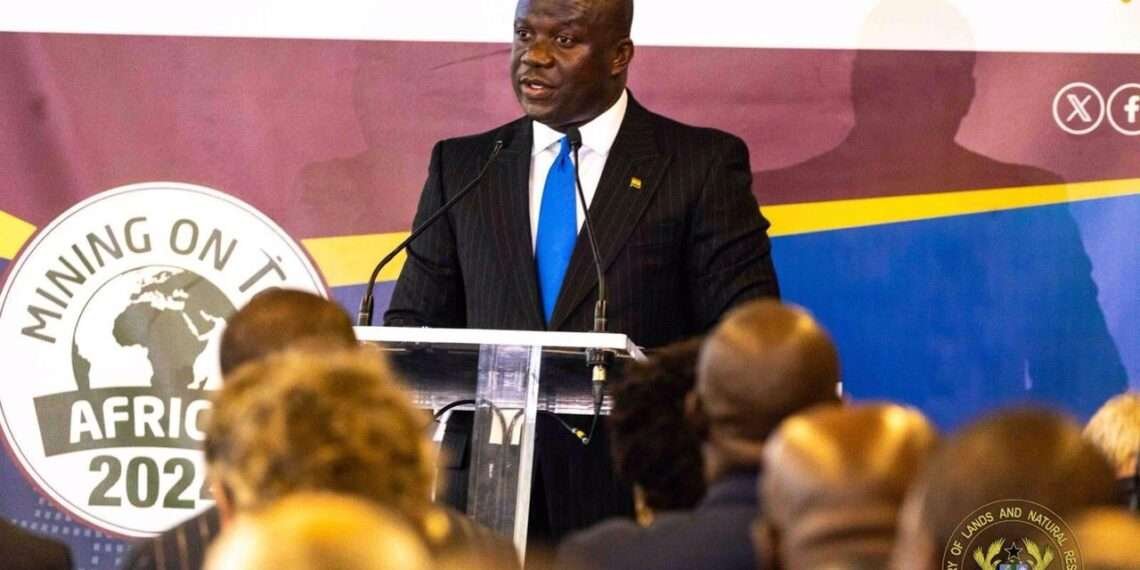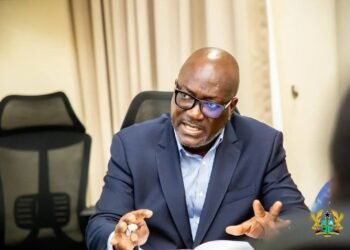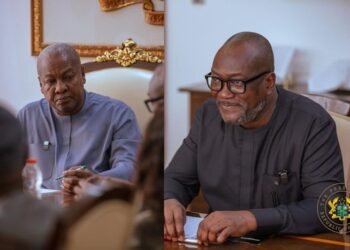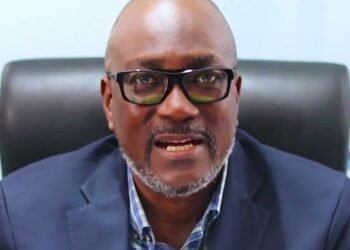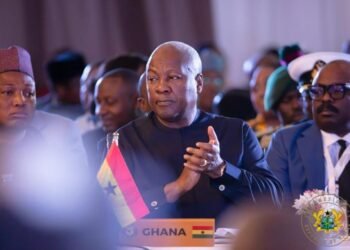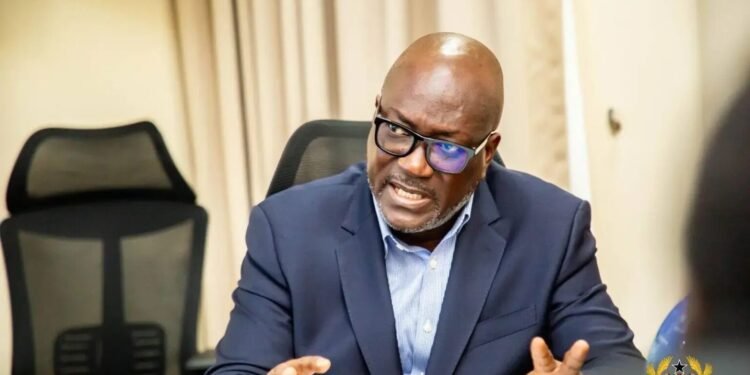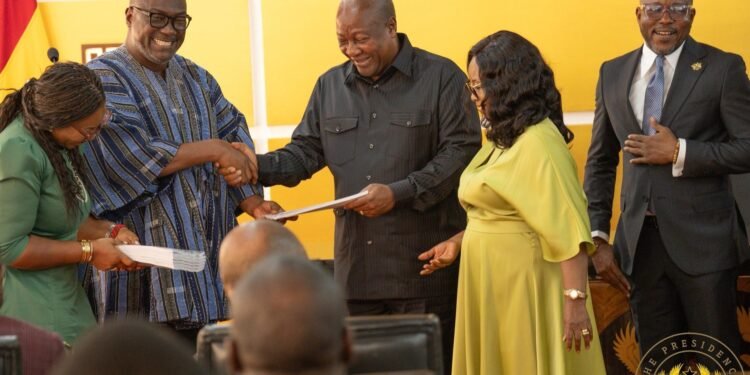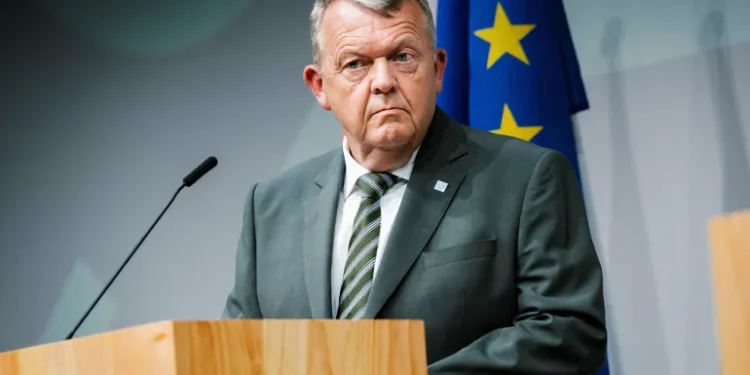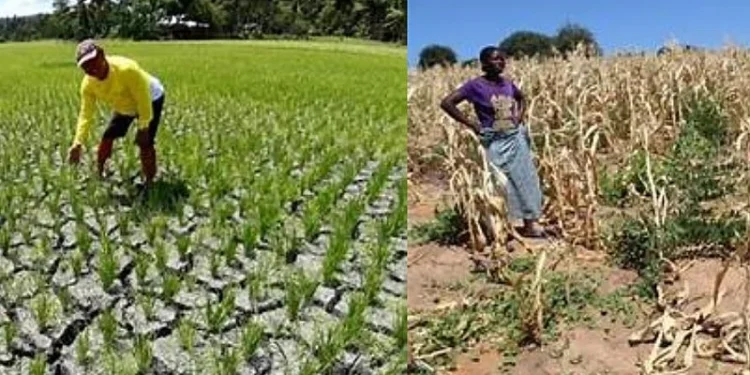In a landmark address at the 2024 Mining On Top Africa Conference in Paris, France, Hon. Samuel A. Jinapor, MP, the Minister for Lands and Natural Resources of Ghana, called for a paradigm shift in the relationship between African mineral-producing countries and their European counterparts.
Speaking on Wednesday, July 3, 2024, Hon. Jinapor highlighted the necessity of fostering mutually beneficial partnerships that would address historical inequalities and promote sustainable development.
Hon. Jinapor emphasized the urgent need to abandon the outdated practice of simply extracting and exporting raw minerals, advocating instead for value addition and increased local participation in the mining industry. He underscored that such partnerships are crucial for achieving the United Nations Sustainable Development Goals (SDGs), particularly in combating climate change, resource depletion, and socioeconomic inequalities.
“The United Nations Sustainable Development Goals provide a framework to address climate change, resource depletion, and socioeconomic inequalities which threaten the well-being of our global community.
“Mutually beneficial mining partnerships between Europe and Africa are crucial to meeting these 2030 Goals. Our modern-day lives depend largely on mining and the appropriate use of a variety of minerals.”
Hon. Samuel A. Jinapor, MP, the Minister for Lands and Natural Resources
Hon. Jinapor stressed the importance of ensuring that the benefits generated through value addition and innovative product development are equitably distributed among all stakeholders, including the host countries and communities.
Hon. Jinapor argued that fair and inclusive partnerships could help tackle environmental degradation, social conflicts, and economic inequalities while promoting efficiency and safety in mining operations.
“Our Economic Partnership Agreements must be designed not only to foster trade and investment but to promote value addition to the minerals we mine, create job opportunities for economic growth, and tackle poverty.”
Hon. Samuel A. Jinapor, MP, and Minister for Lands and Natural Resources
Ghana, as one of the African countries leading the way in implementing environmentally friendly mining policies, serves as a prime example of this new approach. Hon. Jinapor highlighted several initiatives undertaken by the Ghanaian government that have had transformational impacts on the country’s mining sector.
Hon. Jinapor stressed that the new partnerships must ensure an equitable distribution of benefits, allowing African nations to harness the resources needed to combat climate change effectively. He articulated that the framework for mineral exploitation should favorably generate benefits distributed among all stakeholders, including host countries and communities.
“Through these partnerships, we can tackle environmental degradation, social conflicts, and economic inequalities, while promoting efficiency and safety at the mine.
“Our Economic Partnership Agreements must be designed not only to foster trade and investment but promote value addition to the minerals we mine, create job opportunities for economic growth, and tackle poverty.”
Hon. Samuel A. Jinapor, MP, and Minister for Lands and Natural Resources
Ghana’s Green Minerals Policy

Ghana, a leading nation in implementing eco-friendly policies in the mining sector, has made significant strides under the leadership of President Akufo-Addo.
Hon. Jinapor detailed several initiatives and their transformative impacts, emphasizing Ghana’s Green Minerals Policy aimed at promoting value addition and beneficiation across the value chain of green minerals.
“Our aim is to ensure the retention of the full value chain of these critical minerals in the country, to the extent possible. Already, we have established a 400kg capacity gold refinery through a Public-Private Partnership, to refine the gold we produce,” Hon. Jinapor explained.
“We are also promoting local content and local participation across the value chain of our green minerals, from exploration through mining to downstream production, to ensure that Ghanaians benefit optimally from them.”
Hon. Samuel A. Jinapor, MP, the Minister for Lands and Natural Resources
Minister Jinapor reiterated the importance of fairness and inclusivity in rewarding African countries that facilitate the development of green mineral resources. He urged countries to adhere to the principles of the Paris Agreement, committing resources to combat climate change.
“We must renew our commitment to tackling climate change through measures such as the green energy transition, which mining plays a central role in its implementation.
“This transition must be fair, just, inclusive, and carry everyone along. It must not benefit only the consumers of clean energy – investors and their home countries.
“It must also benefit the producers of the minerals required for the transition, who have suffered historical injustices commonly referred to as the ‘resource curse.”
Hon. Samuel A. Jinapor, MP, the Minister for Lands and Natural Resources
Hon. Samuel A. Jinapor’s address at the Mining On Top Africa Conference was a clarion call for a new era in mineral resource management in Africa. By fostering equitable and sustainable partnerships, African countries can not only benefit economically but also play a pivotal role in the global fight against climate change.
As Ghana and other nations continue to implement environment-friendly mining policies, the potential for transformative impacts remains vast, heralding a future where both Africa and its global partners thrive together.
READ ALSO: Jean-Michel Arlandis Takes Helm as Vivo Energy Ghana’s New Managing Director

